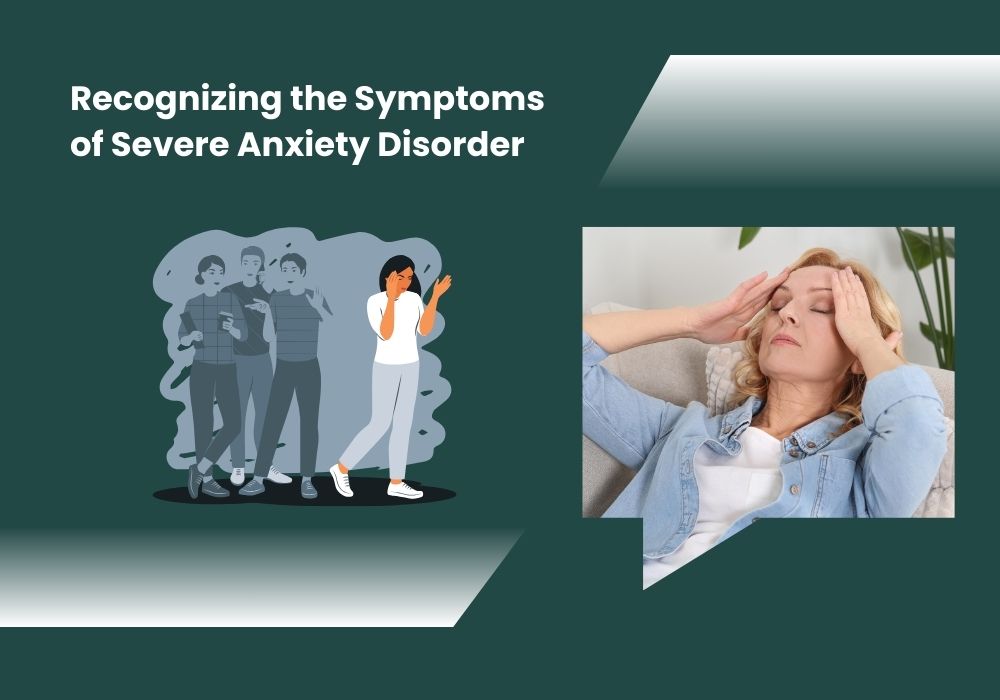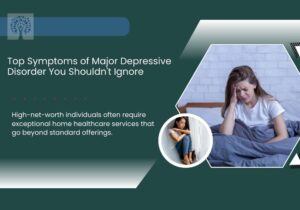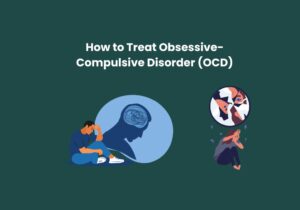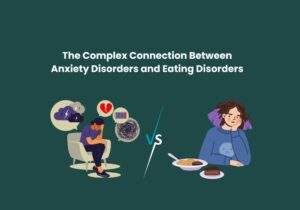Recognizing the Symptoms of Severe Anxiety Disorder. Knowing the signs of severe anxiety is the first step to getting help. Anxiety is a normal reaction to stress. It can keep us alert and help us focus. But for some people, it doesn’t go away. It persists and makes daily life more difficult.
Severe anxiety disorder, often called GAD or panic disorder, is not just feeling nervous now and then. It can take over your life and feel overwhelming.
When anxiety is left untreated, it can lead to more problems. It can affect your mood, sleep, and daily tasks. Your quality of life may drop. That’s why it’s so important to notice the signs early.
In this post, we’ll go over the common signs of severe anxiety. We’ll also examine how it affects individuals and explore the treatments that can help.
Before starting this blog, check out our previous blog post on how to Treat Obsessive-Compulsive Disorder (OCD) effectively. It will help them explore how to Treat Obsessive-Compulsive Disorder (OCD) effectively.
What is Severe Anxiety Disorder?
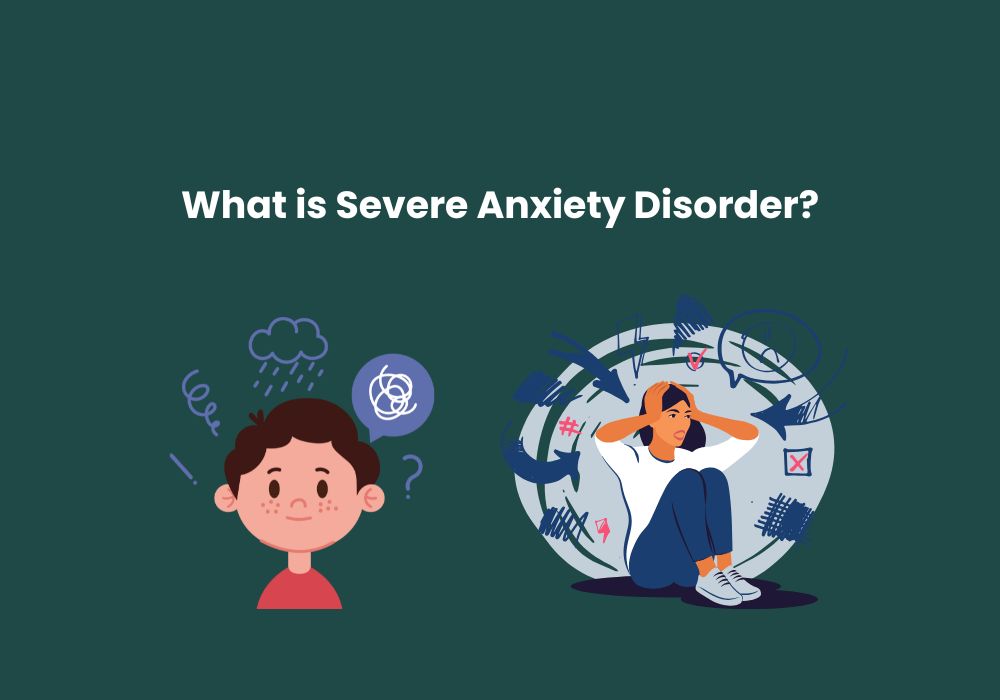
Severe anxiety disorder means feeling very scared or worried all the time. It doesn’t go away like normal stress. It can persist and take over your life. You may feel nervous, upset, or even sick. It can also make it difficult to do everyday things.
Anxiety disorders are very common in the U.S. Millions of people live with them. There are different types, like generalized anxiety disorder (GAD), panic disorder, social anxiety, and phobias.
Common Symptoms of Severe Anxiety Disorder
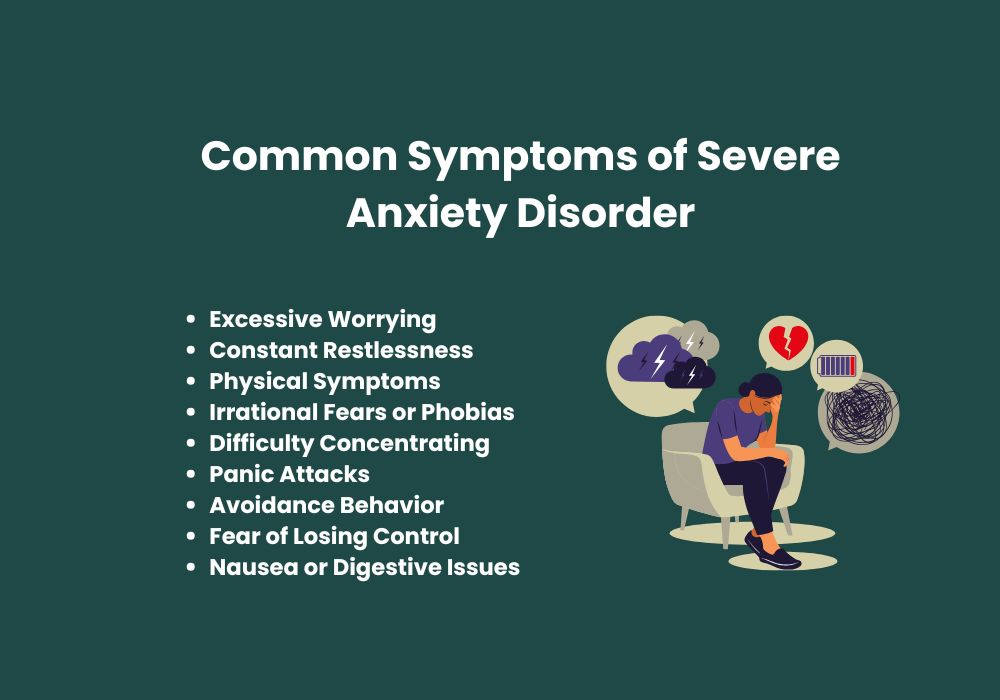
Knowing the signs of severe anxiety can be hard. That’s because they don’t always look the same on everyone. Still, there are some common signs that many people with severe anxiety often have:
1. Excessive Worrying
A key sign of severe anxiety is too much worry about normal things. People with anxiety often think about what could go wrong, even when nothing bad is happening. This worry can go on for hours or even days. It can make it hard to focus or make choices.
2. Constant Restlessness
People with strong anxiety often feel restless or on edge. They may pace, fidget, or move around a lot. Their mind may also feel too busy or full, like it won’t slow down.
3. Physical Symptoms
Severe anxiety often causes physical symptoms, such as:
- Increased heart rate or palpitations
- Shortness of breath or difficulty breathing
- Sweating
- Trembling or shaking
- Dizziness or lightheadedness
- Muscle tension
- Headaches
- Sleep disturbances
These physical symptoms can be mistaken for other health conditions but are often a direct result of heightened anxiety.
4. Irrational Fears or Phobias
Some people become anxious when faced with certain things or places. Common fears include flying, public speaking, or meeting new people. These strong fears are not always logical. Because of this, people try hard to avoid what scares them.
5. Difficulty Concentrating
When anxiety comes, it is hard to think about anything else. The mind fills with worries and fears. This makes it tough to finish tasks at work or school. It can hurt both your personal and work life. Many people feel “zoned out” or struggle to focus.
6. Panic Attacks
A panic attack is an intense episode of fear that lasts several minutes. The symptoms of a panic attack include chest pain, rapid breathing, dizziness, and a feeling of impending doom. While panic attacks may occur suddenly and without warning, they are often linked to severe anxiety disorders.
Those who suffer from panic disorder may experience recurrent panic attacks, which can disrupt daily functioning and lead to increased avoidance behaviors.
7. Avoidance Behavior
When anxiety grows, people may try to stay away from things they think will cause their symptoms. This could mean skipping social events, work meetings, or other stressful activities. If this avoidance worsens, it can make people feel isolated. Their world may get smaller. This can make anxiety worse and cause depression.
8. Fear of Losing Control
Many people with strong anxiety fear losing control or “going crazy.” This fear comes from the intense feelings they get. These feelings can be both physical and emotional. They often happen during a panic attack or when anxiety is very high.
9. Nausea or Digestive Issues
Many people with anxiety have stomach problems. They may feel unwell, experience diarrhea, or have other gastrointestinal issues. Stress and anxiety cause the body to react this way. These signs can look like a sickness, but they come from anxiety.
How Anxiety Affects Daily Life
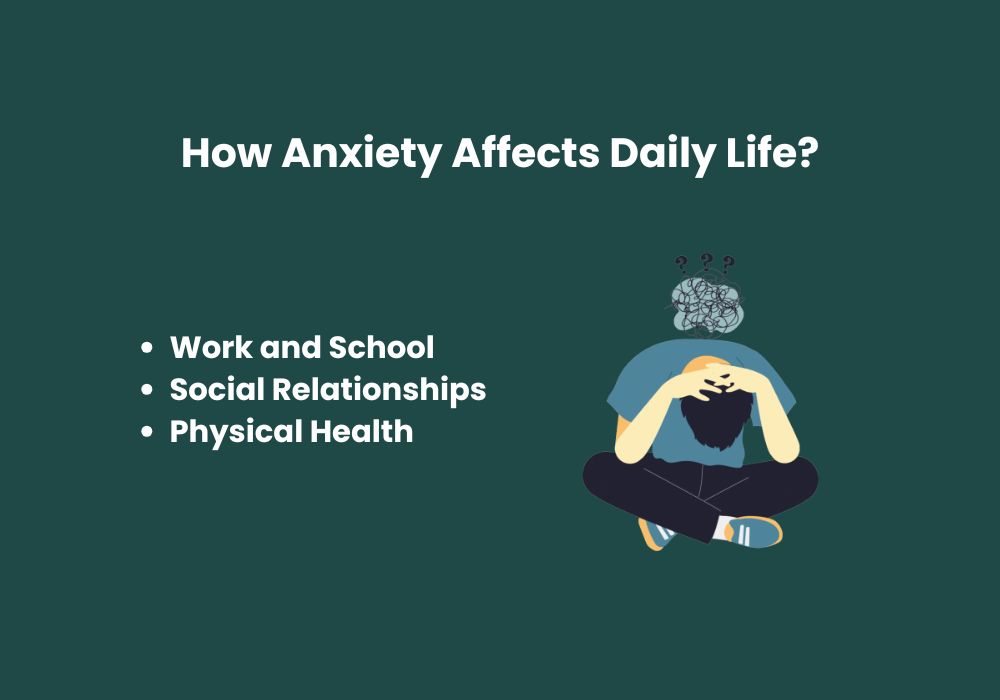
Severe anxiety disorder affects more than just the mind and body. It can significantly impact many aspects of daily life. For example:
Work and School: Anxiety makes it hard to focus and finish tasks. Deadlines feel tough to meet. People may skip meetings or events because they fear panic attacks or worry too much about doing well.
Social Relationships: Anxiety makes it hard to talk with others. Many avoid social time. They fear being judged or having anxiety in public. This can cause them to feel isolated or disconnected from friends.
Physical Health: Long-term stress from anxiety can hurt the body. It can raise the chance of heart problems, high blood pressure, and pain that lasts a long time.
When to Seek Professional Help
While it is normal to experience anxiety from time to time, it becomes problematic when it disrupts daily life or continues for an extended period. If you or someone you know is experiencing any of the symptoms mentioned above, it is essential to seek professional help from a licensed mental health provider. Peniel Psychiatry specializes in diagnosing and treating anxiety disorders through a combination of therapy, medication, and lifestyle changes.
Treatment options for severe anxiety disorder may include:
- Cognitive Behavioral Therapy (CBT): A widely recognized form of therapy that helps individuals identify and change negative thought patterns that contribute to anxiety.
- Medication: Antidepressants, anti-anxiety drugs, and beta-blockers are often prescribed to help control anxiety symptoms. Your psychiatrist will determine the most appropriate medication based on your symptoms and needs.
- Lifestyle Changes: Regular exercise, healthy eating, and relaxation techniques (such as meditation and yoga) can help reduce the overall stress load and improve anxiety symptoms.
Frequently Asked Questions
What are the early signs of severe anxiety disorder?
Early signs often include constant worry, restlessness, difficulty concentrating, and trouble sleeping. Physical symptoms, such as increased heart rate or nausea, may also appear.
How do I know if my anxiety is severe or just normal stress?
Every day, stress is temporary and linked to specific situations. Severe anxiety is persistent, intense, and interferes with daily life, relationships, and health.
Can severe anxiety cause physical health problems?
Yes, it can. Chronic anxiety may lead to issues like headaches, digestive problems, high blood pressure, and an increased risk of heart disease over time.
What is the most effective treatment for severe anxiety disorder?
Cognitive Behavioral Therapy (CBT), medication (like SSRIs or anti-anxiety drugs), and lifestyle changes (such as regular exercise and relaxation techniques) are often effective.
When should I seek professional help for anxiety?
If anxiety symptoms last several weeks, impact your daily life, or cause panic attacks, it’s essential to consult a licensed mental health professional as soon as possible.
Conclusion
Recognizing the symptoms of severe anxiety disorder is the first step toward getting help. If left untreated, anxiety can severely affect a person’s quality of life, but with the right treatment and support, recovery is possible. If you or a loved one is struggling with anxiety, don’t hesitate to reach out to a mental health professional for help.
At Peniel Psychiatry, we help you navigate your mental health journey. We offer comprehensive evaluations and personalized treatment plans tailored to your specific needs. If you’re ready to take control of your mental health and find the support you need, contact us today.

